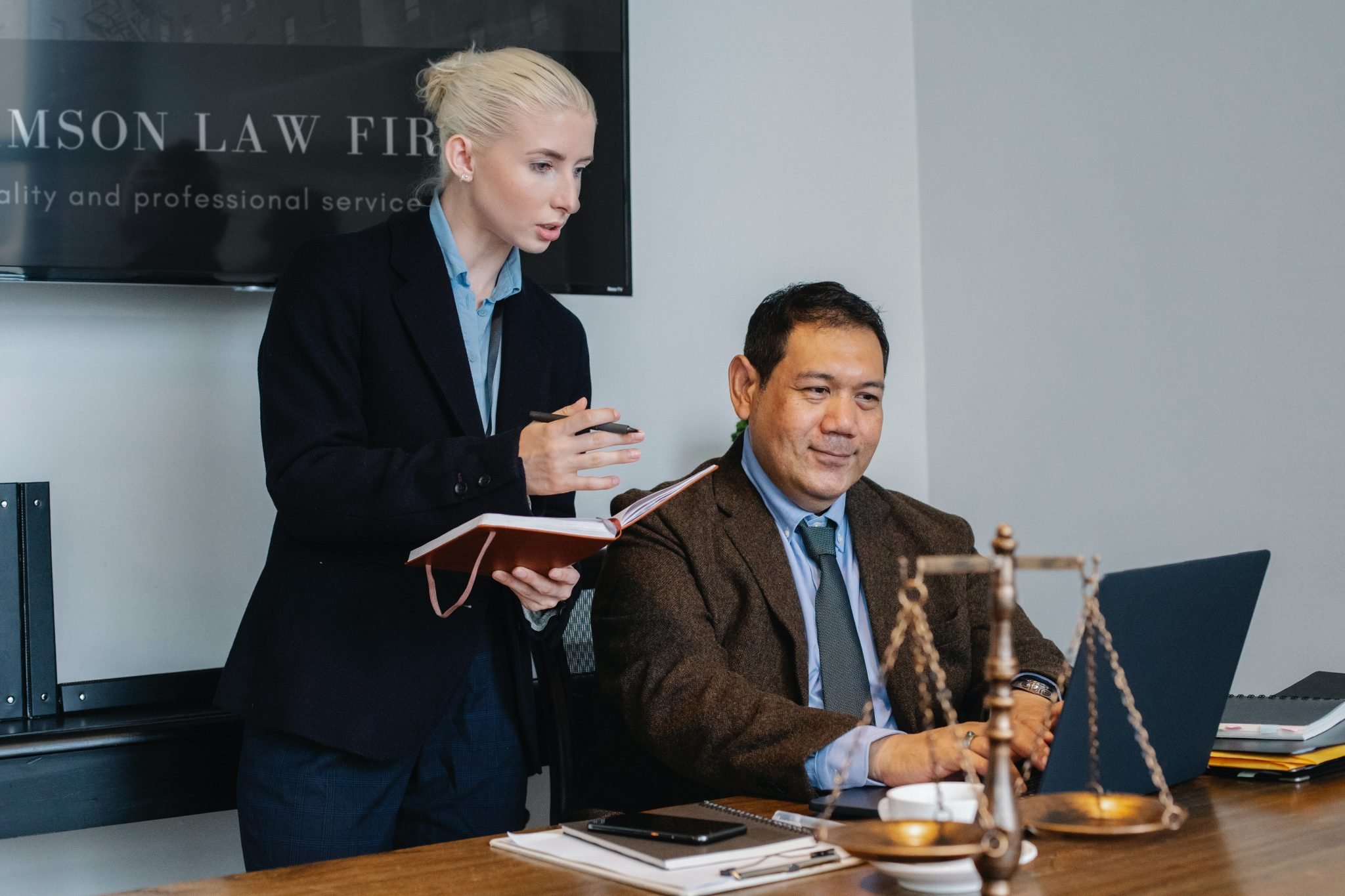June 28, 2021
Welcome to the Next Normal

Distinguished GC panel weighs in on preferred communications between firms and clients, fulfillment of DE&I commitments, and the continuation of virtual engagement post-pandemic.
After the once-in-a-century inflection point of a global pandemic, the legal industry — and all of corporate America — faces another major transition as COVID-19 fades and the “new normal” sets in.
With offices reopening across the country, what lessons will the legal industry retain from the pandemic and what trends from the last 15 months will remain? Just as significantly, what will be the lasting legacy of a national racial reckoning that largely coincided with the worst global health crisis in generations?
These questions were the focus of a distinguished panel of current and former general counsel held on June 8, 2021. Sponsored by The Mid-Atlantic Chapter of the Legal Marketing Association, the remote gathering was moderated by John Corey, President & Founding Partner of Greentarget, and Mary K. Young, partner at Zeughauser Group. The participants were:
- Rachel Adams, former Vice President, Deputy General Counsel, Lenovo
- Alex Dimitrief, Partner, Zeughauser Group and former General Counsel, General Electric
- Peter Muñiz, Vice President and Deputy General Counsel, The Home Depot
Often focused on offering guidance for law firms, the conversation was broken into two main categories: How the interactions and communications between firms and clients will look coming out of the pandemic and how the legal industry should continue its renewed focus on diversity, equity and inclusion. The main takeaways from the conversation include:
- Video and remote conferencing is here to stay, and law firms should make the most of it.
- Law firm communications (alerts, webinar invites, etc.) still aren’t targeted enough as clients seek next-level analysis.
- Firms need to be careful return-to-office plans don’t put disproportionate pressure on working women.
- Firms need to make good on their public DE&I promises.
- Marketers can play important roles as change agents within their firms.
The following includes highlights of the conversation with edits for clarity and length.
We are Living the “New Normal”
Q: How much of the pivot to remote and virtual communications since the start of the pandemic will remain – and how can law firms continue to improve and leverage this development?
Rachel: I see more and more communications using technology and video conferencing. Why should I get on an airplane, waste an evening traveling, stay at a hotel, have a three- or four-hour meeting and then turn back around? I think we’ve learned in the past year-plus how productive we’ve been working remotely.
Alex: Law firms ought to realize that they’re more likely to get client participation if they can just log onto an hour-long webinar. Anything that helps people save time is a plus — and I think law firms that have embraced the new normal and make interactive technologies work are going to win the day.
Peter: Throughout the pandemic, our company has been a video-on company and rarely on a video call does someone make it so you can’t see their face. But that’s not the case with some of our outside counsel and it definitely stands out. That’s an example of why it’s important to be sensitive to the client culture and adapting to it is something law firms need to consider.
Q: Beyond video conferencing, how can law firms do a better job communicating?
Alex: I’m really disappointed when I get a client alert that says, “News Flash – the Coronavirus Raises Issues of Force Majeure and Material Adverse Events.” Well, no kidding. Everyone knows that. You’ve got to remember that you’ve got a sophisticated audience looking for next-level analysis.
Rachel: We get flooded with emails, webinars, research, etc., but if law firms can target and educate themselves on what our big issues may be, then what they’re sending us can cut through the noise. It’s also about understanding what our drama is and what our daily demons are with limited budgets and limited head count.
Q: How do you see the use of in-person meetings changing, and is there opportunity for law firms in the change?
Alex: There are going to be some things that are so important, so material that people are going to want in-person interaction, but that will be the exception. When a client wants to sit in the room to gauge credibility and confidence and advice, that’s a good thing — and firms ought to embrace it. But I wouldn’t insist upon it.
Rachel: If we are going to sit down with our outside counsel and discuss a substantive matter, we’re going to also ask you to provide training to our in-house lawyers while you’re there. That’s an opportunity for you to get to know us better because, if we’re going to have an in-person meeting, we want to get additional value out of the relationship.
Peter: There is something to be said for human contact, but it’s going to be a very targeted approach going forward. From a marketing standpoint, law firms should see the advantages of these new forums and how to truly engage with clients effectively and efficiently. In so doing, their networks are literally going to expand because they’re getting exposed to more members of our teams.
Q: How should law firms think about their own in-house talent given the new normal?
Peter: They need to consider how they evolve their own work cultures so they can maximize their human capital. How are they going to really leverage this new work environment and how can they evolve it to retain and attract the talent that’s necessary for them to excel and to meet our needs should be big considerations.
Alex: Law firm leaders must establish credible and compelling criteria for requiring lawyers to come to the office. The last time I checked, they exceled over the last year and a half working remotely. So, this theme that you need people in the office to demonstrate client commitment rings a little hollow. That said, I understand the considerations around firm culture, for training and other opportunities.
Firms Making Progress on DE&I? “Too Early to Tell.”
Q: Have law firms improved on their commitments to deliver on DE&I over the past year?
Rachel: As an African American woman, I think everybody stepped up communications. I don’t want to say they had to, but they had to — as being silent was not the right thing to do. But at some point, we’re going to start asking for numbers. You can give us all the commitments that you want, but who’s coming out on pitches? Who’s working on our files? Who’s doing the work? We want to understand not just your verbal commitments but your actions.
Peter: Firms have enhanced their level of self-awareness and they understand that there has been a seismic shift. But are they moving the needle? I think it’s too early to tell. They’re engaging with clients in a more collaborative fashion, they want to benchmark and share best practices – and that’s all good. But over time, we will see whether there’s measurable improvement.
Alex: This issue is largely about talent pipelines and whether firms hire from a broader spectrum of law schools than before, whether they can put less focus on grades and more focus on overall qualifications and how they treat diverse lawyers and promote their careers in an appropriate way. Honestly, I don’t know a topic that we’ve talked about more in recent decades and achieved less.
Q: What responsibility do clients have to help improve law firm diversity?
Peter: If you come to me to pitch for business, or if you’re an existing firm and the team that you construct does not reflect my values, you’re not going to be doing much business with me going forward. But I communicate that clearly so it’s not a trap. It’s important for in-house counsel to clearly set expectations.
Rachel: We’re very upfront on what are expectations are for diverse teams and law firms that are coming in to pitch us and law firms that are doing work for us; if you can’t meet certain requirements, you won’t do business with us.
Alex: This often comes down to how to handle a client who says, “Hey, I need to see DE&I,” and then balks at a diverse team on a big case, preferring the white males who have worked for them in the past. I hear leaders of law firms talk about how they’re frustrated by these hypocritical clients, and what I’d say to law firms is, “It’s time to call them on it.”
Q: Are there related issues when it comes to DE&I and the return to the office?
Rachel: Firms are going to have to be flexible. The burdens on female lawyers, both in-house and at outside firms, when it comes to raising children over the past year-plus should be on leaders’ minds when enacting rules about being in the office.
Alex: The worst thing that could happen is for a firm to say that everyone is free to work remotely and still view time in the office as proxy for commitment to clients, commitment to the firm, etc. In that scenario, lawyers who believed they had the flexibility to work at home could be told “You didn’t really demonstrate the commitment” when they’re up for partner. And that could disproportionately affect females.
Peter: If law firms want to be employers of choice, they must adapt and not make excuses or avoid embracing flexibility. All the myths about whether you could trust employees to work remotely? We’re past that. We have successfully run multi-billion-dollar businesses remotely.
Q: Can law firm marketers play a role in new thinking about the office and DE&I?
Rachel: Lawyers are set in their ways and comfortable bringing the same people to pitch meetings. But they need to understand whom they’re meeting with and what those parties increasingly look for. Marketing teams can help provide this valuable insight and tailor teams for pitches.
Peter: Marketers can help shape the voice of the law firm because they know their audiences. Understanding me and my values and my commitment to whatever issue we’re talking about is absolutely critical if you’re pitching me or engaging me on a substantive issue.









